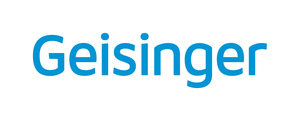DNA changes that cause neuropsychiatric disorders should be included in genomic screening programs, researchers say
Geisinger team publishes findings in Journal of the American Medical Association, Psychiatry
DANVILLE, Pa., July 23, 2020 /PRNewswire/ -- Geisinger researchers have concluded there is sufficient evidence to consider including DNA changes that cause neurodevelopmental and psychiatric disorders in genomic screening programs.
Geisinger is a leader in population-based genomic screening, and its MyCode Community Health Initiative is the only such research program that routinely returns clinically relevant results to patient-participants. The Geisinger team discovered that close to 1 percent of the more than 250,000 individuals enrolled in MyCode have a DNA change that is known to cause learning disorders, autism spectrum disorder, epilepsy, or other psychiatric illnesses. By analyzing electronic health record data, the research team determined that up to 70 percent of these individuals had a related clinical symptom documented, but most were unaware of their underlying genetic diagnosis.
The team published their findings in the Journal of the American Medical Association, Psychiatry on July 22.
"Our results show that DNA changes that cause certain brain conditions are at least as common as those that cause some cancers and cardiac diseases that are already being screened for in similar population-based DNA screening programs," said Christa Lese Martin, Ph.D., associate chief scientific officer for Geisinger and professor and director of the Autism & Developmental Medicine Institute. "When we talked with participants about their medical history and found that such a significant proportion had symptoms related to their genetic diagnosis, they shared that the genetic results 'medicalized' what they had been dealing with their whole lives."
When presented with their screening results, a subset of more than 140 patients responded positively and found the information to be valuable. Participants frequently noted that the DNA results helped them understand their own medical and personal history related to the conditions being studied, and many intended to share their results with family members since these DNA changes can be inherited.
"These DNA results are likely to have had a large impact on health and wellbeing throughout life for these individuals," said Karen E. Wain, MS, assistant professor for Geisinger's Autism & Developmental Medicine Institute. "It is important to know how people feel about these results, for themselves and their family, so we can ensure they have access to their genetic information with appropriate support."
Advances in genetic testing have made it possible to identify a genetic cause of neurodevelopmental and psychiatric disorders in more than 40 percent of individuals tested. However, most testing is ordered for children with developmental concerns and is rarely offered to adult patients with intellectual disabilities or psychiatric conditions. The Geisinger team noted that only about 6 percent of individuals in their study had received a genetic diagnosis through clinical testing. This indicates that many people who could benefit from genomic information have not had access to this information, and that their health care providers have not been informed of the additional health risks that the genomic result confers.
"There is an important care gap and knowledge gap when it comes to genetic testing in adults with neuropsychiatric conditions," said David Ledbetter, Ph.D., executive vice president and chief scientific officer for Geisinger. "We hope the positive clinical and personal utility seen in our MyCode population will help to encourage broader use of genetic testing in adults with these conditions."
About Geisinger
Geisinger is committed to making better health easier for the more than 1.5 million consumers it serves. Founded more than 100 years ago by Abigail Geisinger, the system now includes 13 hospital campuses, a 600,000-member health plan, two research centers and the Geisinger Commonwealth School of Medicine. With 32,000 employees and 1,800 employed physicians, Geisinger boosts its hometown economies in Pennsylvania and New Jersey by billions of dollars annually. Learn more at geisinger.org or connect with us on Facebook, Instagram, LinkedIn and Twitter.
CONTACT: Ashley Andyshak Hayes
717-972-4043
[email protected]
SOURCE Geisinger

Related Links
WANT YOUR COMPANY'S NEWS FEATURED ON PRNEWSWIRE.COM?
Newsrooms &
Influencers
Digital Media
Outlets
Journalists
Opted In



Share this article